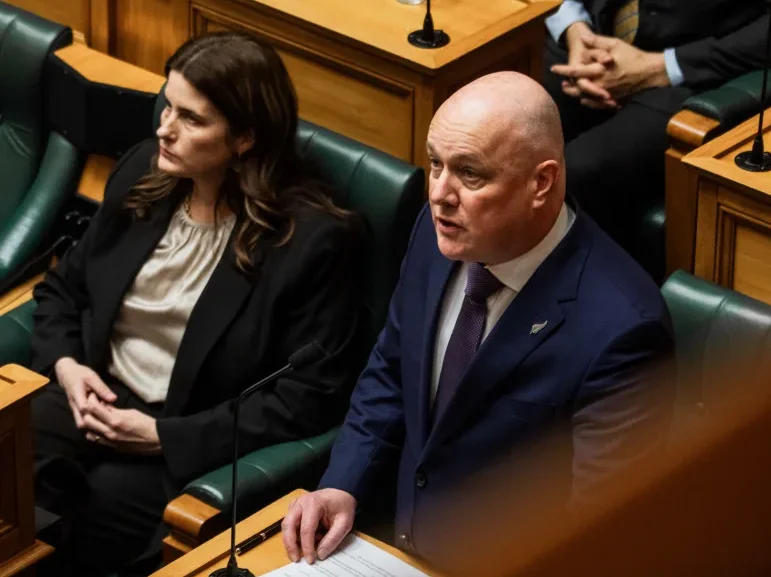Luxon Asserts Crown Sovereignty in Heated Parliamentary Exchange
Prime Minister Christopher Luxon firmly stated in Parliament that Māori ceded sovereignty to the Crown, sparking a tense debate during Question Time.
The exchange began when Green Party Co-Leader Chloe Swarbrick repeatedly pressed Luxon on whether he believed Māori had ceded sovereignty. Luxon responded, “Our position is the Crown is sovereign.”
Deputy Prime Minister Winston Peters intervened, referencing a significant historical perspective: “Is it a fact that, 102 years ago in a major thesis, Sir Apirana Ngata set out the very circumstances of the Treaty, and he said that Māori ceded sovereignty?”
Luxon reiterated his stance, emphasizing, “Our position is the Crown is sovereign,” while also acknowledging that the Treaty of Waitangi includes protections for both Crown and Māori interests.
Undeterred, Swarbrick continued to question Luxon, asking, “Are we to take from that answer that the Prime Minister believes that Māori ceded sovereignty?” Luxon responded, “I don’t know how I could be clearer in answer to the first question.”
When Swarbrick directly asked when Māori ceded sovereignty, Luxon reiterated his position: “The Treaty of Waitangi was the founding document of New Zealand and it had protection for both Māori and Crown interests. But as I said to you, the position is very clear: Māori ceded sovereignty to the Crown.”
Swarbrick also brought up a Waitangi Tribunal finding from a decade ago, which concluded that the rangatira who signed Te Tiriti o Waitangi in February 1840 did not cede their sovereignty to Britain.
The exchange highlights the ongoing debate over the interpretation of the Treaty of Waitangi and the implications of sovereignty in New Zealand’s political landscape. The differing viewpoints underscore the complexity of the Treaty’s legacy and its role in shaping the relationship between the Crown and Māori


